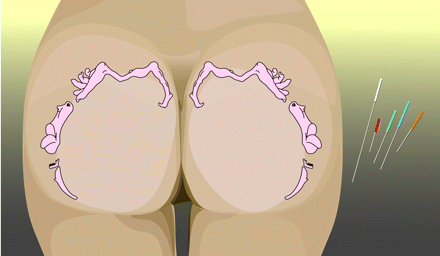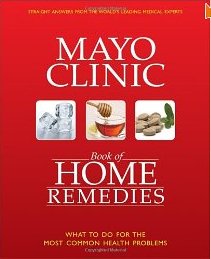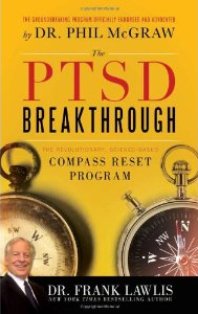December 30th, 2010 by Harriet Hall, M.D. in Better Health Network, Book Reviews, Opinion, Research
No Comments »

 Myths and misconceptions about cancer abound. Oncologists are frequently criticized for torturing patients by burning, cutting and poisoning without making any real progress in the war against cancer. Siddhartha Mukherjee, an oncologist and cancer researcher, tries to set the record straight with his new book The Emperor of All Maladies: A Biography of Cancer.
Myths and misconceptions about cancer abound. Oncologists are frequently criticized for torturing patients by burning, cutting and poisoning without making any real progress in the war against cancer. Siddhartha Mukherjee, an oncologist and cancer researcher, tries to set the record straight with his new book The Emperor of All Maladies: A Biography of Cancer.
It is a unique combination of insightful history, cutting edge science reporting, and vivid stories about the individuals involved: The scientists, the activists, the doctors, and the patients. It is also the story of science itself: How the scientific method works and how it developed, how we learned to randomize, do controlled trials, get informed consent, use statistics appropriately, and how science can go wrong. It is so beautifully written and so informative that when I finished it I went back to page one and read the whole thing again to make sure I hadn’t missed anything. I enjoyed it just as much the second time. Read more »
*This blog post was originally published at Science-Based Medicine*
December 16th, 2010 by Harriet Hall, M.D. in Better Health Network, Humor, Medical Art, Opinion, Research
No Comments »

In 1996, Alan Sokal got a bogus paper published in the journal Social Text. It was a parody full of meaningless statements in the jargon of postmodern philosophy and cultural studies. The editors couldn’t tell the difference between Sokal’s nonsense and the usual articles they publish.
Now a British professor of medical education, Dr. John McLachlan, has perpetrated a similar hoax on supporters of so-called “integrative” medicine. He reports his prank in an article in the British Medical Journal (BMJ).

After receiving an invitation to submit papers to an International Conference on Integrative Medicine, he invented a ridiculous story about a new form of reflexology and acupuncture with points represented by a homunculus map on the buttocks. He claimed to have done studies showing that
responses are stronger and of more therapeutic value than those of auricular or conventional reflexology. In some cases, the map can be used for diagnostic purposes.
The organizers asked him to submit an abstract. He did. In the abstract he said he would present only case histories, testimonies, and positive outcomes, since his methods did not lend themselves to randomized controlled trials; and he suggested that his “novel paradigm” might lead to automatic rejection by closed minds. Read more »
*This blog post was originally published at Science-Based Medicine*
October 21st, 2010 by Harriet Hall, M.D. in Better Health Network, Health Policy, Health Tips, News, Opinion, Research, True Stories
No Comments »

Dr. Novella has recently written about this year’s seasonal flu vaccine and Dr. Crislip has reviewed the evidence for flu vaccine efficacy. There’s one little wrinkle that they didn’t address — one that I’m more attuned to because I’m older than they are.
I got my Medicare card last summer, so I am now officially one of the “elderly.” A recent review by Goodwin et al. showed that the antibody response to flu vaccines is significantly lower in the elderly. They called for a more immunogenic vaccine formulation for that age group. My age group. One manufacturer has responded. Read more »
*This blog post was originally published at Science-Based Medicine*
October 7th, 2010 by Harriet Hall, M.D. in Better Health Network, Book Reviews, Health Tips, Opinion
No Comments »

 I write a lot of critical articles. It’s nice to be able to write a positive one for a change. I received a prepublication proof of The Mayo Clinic Book of Home Remedies: What to Do for the Most Common Health Problems. It is due to be released on October 26 and can be pre-ordered from Amazon.com. Since “quackademic” medicine is infiltrating our best institutions and organizations, I wasn’t sure I could trust even the prestigious Mayo Clinic. I was expecting some questionable recommendations for complementary and alternative medicine (CAM) treatments, but I found nothing in the book that I could seriously object to.
I write a lot of critical articles. It’s nice to be able to write a positive one for a change. I received a prepublication proof of The Mayo Clinic Book of Home Remedies: What to Do for the Most Common Health Problems. It is due to be released on October 26 and can be pre-ordered from Amazon.com. Since “quackademic” medicine is infiltrating our best institutions and organizations, I wasn’t sure I could trust even the prestigious Mayo Clinic. I was expecting some questionable recommendations for complementary and alternative medicine (CAM) treatments, but I found nothing in the book that I could seriously object to.
It is organized alphabetically, starting with acne and airplane ear and progressing through bedbugs, boils and bronchitis, dandruff, depression and diabetes to warts, wrinkles and wrist pain. Each entry consists of (1) a description of the problem and its symptoms, (2) treatments you can try at home, and (3) when to seek professional medical help. It concludes with a short section on emergency medicine that covers anaphylaxis, bleeding, burns, CPR, choking, fracture, heart attack, poisoning, seizure, shock and stroke.
Nowhere does it mention acupuncture, chiropractic, energy medicine, or homeopathy. It gives good, clear guidance about when a health problem should not be treated with home remedies. Its recommendations about diet and exercise are solid. It doesn’t recommend anything that can’t be supported by published studies and common sense. When it recommends herbal remedies and dietary supplements, it is cautious about what it claims. For instance, glucosamine and chondroitin are listed for osteoarthritis, but they point out that further study is required and they say “because the supplements may help and appear to be safe, it may not hurt to give them a try.” Not exactly a strong recommendation. Read more »
*This blog post was originally published at Science-Based Medicine*
September 23rd, 2010 by Harriet Hall, M.D. in Better Health Network, Book Reviews, Opinion, Quackery Exposed, Research
3 Comments »

 It infuriates me when someone misappropriates the word “science” to promote treatments that are not actually based on science. I have just read a book entitled The PTSD Breakthrough: The Revolutionary Science-Based Compass RESET Program by Dr. Frank Lawlis, a psychologist who is the chief content advisor for Dr Phil and The Doctors. There is very little science in the book and references are not provided. It amounts to an indiscriminate catalog of everything Dr. Lawlis can imagine that might help post-traumatic stress disorder (PTSD) patients.
It infuriates me when someone misappropriates the word “science” to promote treatments that are not actually based on science. I have just read a book entitled The PTSD Breakthrough: The Revolutionary Science-Based Compass RESET Program by Dr. Frank Lawlis, a psychologist who is the chief content advisor for Dr Phil and The Doctors. There is very little science in the book and references are not provided. It amounts to an indiscriminate catalog of everything Dr. Lawlis can imagine that might help post-traumatic stress disorder (PTSD) patients.
He describes recent brain imaging studies suggesting that signs of traumatic brain injury are associated with PTSD. He thinks PTSD can no longer be considered a psychological condition, but must be approached as a complex biological, physical, psychological, and spiritual condition. He says many of these patients have brain damage. Read more »
*This blog post was originally published at Science-Based Medicine*
 Myths and misconceptions about cancer abound. Oncologists are frequently criticized for torturing patients by burning, cutting and poisoning without making any real progress in the war against cancer. Siddhartha Mukherjee, an oncologist and cancer researcher, tries to set the record straight with his new book The Emperor of All Maladies: A Biography of Cancer.
Myths and misconceptions about cancer abound. Oncologists are frequently criticized for torturing patients by burning, cutting and poisoning without making any real progress in the war against cancer. Siddhartha Mukherjee, an oncologist and cancer researcher, tries to set the record straight with his new book The Emperor of All Maladies: A Biography of Cancer. 




 It infuriates me when someone misappropriates the word “science” to promote treatments that are not actually based on science. I have just read a book entitled
It infuriates me when someone misappropriates the word “science” to promote treatments that are not actually based on science. I have just read a book entitled 







